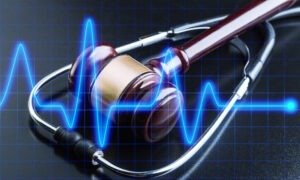
Introduction
Medical diagnoses are critical in providing appropriate patient care and treatment. However, medical misdiagnoses can have serious consequences, potentially leading to delayed or incorrect treatment, worsening conditions, and even irreversible harm.
If you have experienced a medical misdiagnosis, it’s essential to understand the legal considerations surrounding such cases. This article will explore the legal aspects of medical misdiagnoses, including potential liabilities, patient rights, and avenues for recourse.
Understanding Medical Misdiagnoses
Medical misdiagnosis occurs when a healthcare professional fails to accurately identify a patient’s condition, leading to incorrect treatment or a delayed diagnosis.
Common examples of medical misdiagnoses include failure to diagnose cancer, misinterpretation of test results, or disregarding symptoms that may indicate a specific medical condition.
Establishing Medical Negligence
To pursue a legal claim for medical misdiagnosis, you must establish that the healthcare professional’s actions or omissions fell below the standard of care expected in their field. This generally requires demonstrating the following elements:
- Duty of Care: The healthcare professional has a duty to provide a reasonable standard of care based on their professional training and expertise.
- Breach of Duty: The healthcare professional failed to meet the expected standard of care through negligence, errors, or omissions in the diagnostic process.
- Causation: The misdiagnosis directly caused harm or injury to the patient.
- Damages: The patient suffered physical, emotional, or financial harm due to the misdiagnosis.
Patient Rights and Informed Consent
Patients have the right to be informed about their medical condition, treatment options, and potential risks. Informed consent is critical to the doctor-patient relationship, ensuring patients can make knowledgeable decisions about their healthcare.
If misdiagnosis occurs due to a lack of information provided to the patient, it may violate the patient’s rights.
Medical Malpractice Claims
Medical misdiagnoses can give rise to medical malpractice claims. To succeed in a medical malpractice claim, you must prove the following:
- Doctor-Patient Relationship: You had a professional relationship with the healthcare provider, establishing their duty of care towards you.
- Negligence: The healthcare provider’s misdiagnosis resulted from negligence or a deviation from the standard of care.
- Causation: The misdiagnosis directly caused harm or injury to you.
- Damages: You suffered damages due to the misdiagnosis, such as additional medical expenses, loss of income, or physical and emotional pain and suffering.
Statute of Limitations
Knowing the statute of limitations and the timeframe within which you must file a medical malpractice claim is essential.
In most jurisdictions, the clock starts ticking from the date of the misdiagnosis or when it should have reasonably been discovered. Failing to file within the specified time limit can result in losing your right to pursue legal action.
Seeking Legal Representation
Navigating a medical misdiagnosis claim can be complex, requiring expert knowledge of medical and legal matters. Consulting with an experienced medical malpractice attorney is crucial to ensure that your rights are protected, and you have the best chance of securing a favorable outcome.
An attorney can evaluate the strength of your case, gather evidence, consult with medical experts, and guide you through the legal process.
Avenues for Recourse
If you have experienced a medical misdiagnosis, there are several avenues for recourse that you may consider:
- Medical Board Complaints: By filing a complaint with the relevant medical board, you can trigger an investigation into the healthcare professional’s conduct, potentially leading to disciplinary actions against them.
- Alternative Dispute Resolution: In some cases, mediation or arbitration may be an option to resolve the dispute without going to court.
- Lawsuits: Pursuing a medical malpractice lawsuit can seek compensation for damages incurred due to the misdiagnosis. This can cover medical expenses, lost wages, rehabilitation costs, and pain and suffering.
Conclusion
Medical misdiagnoses can have devastating effects on patients and their families. Understanding medical misdiagnoses’ legal considerations is crucial to protect your rights and seek appropriate recourse.
By establishing medical negligence, understanding patient rights, and seeking legal representation when necessary, you can navigate the complexities of medical malpractice claims and work towards obtaining the compensation and justice you deserve.
Remember, consulting with a qualified attorney experienced in medical malpractice cases is essential to ensure the best possible outcome for your situation.

